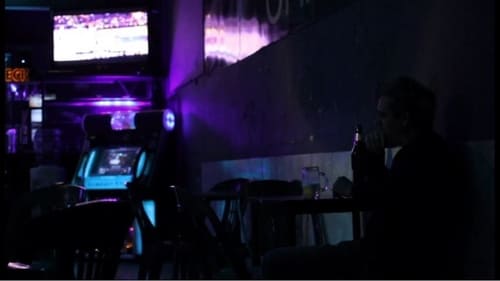
Editor
After an accident, Ana needs some metal prosthetics in one of her forearms. During her winter vacation, she notices something strange—as though her arm were an antenna, she begins to receive messages in morse code. This happens every day, but the frequency is different. With a little help from her friends, the young woman spends her days trying to decipher the enigmatic code coming from her body. Is it a song? A call from unthought-of places? Is it a game? Or a simple problem with the prosthetics? As she did in her short films, Ingrid Pokropek relies on fiction to tackle the shortcomings of early adolescence and pay tribute to Buenos Aires City’s geography. In Los tonos mayores, the fantastic barges in little by little, with the same conviction Ana enters the adventure of her life.

Editor
With the strange disappearance of Laura, two colleagues, her older boyfriend, Rafael, and Ezequiel, learn of their recent discoveries, which may help them locate her. However, the story is bigger and stranger than they could imagine.

El Indio
Is this film about Clorindo Testa or not? Is it about the life of the director, about the life of his father, about the life of his country, or is it just one of those biographical films that proliferate at film festivals in which the narrator spends his time recounting family anecdotes and pulling old photos out of a box? This small, microscopic adventure, whose subtitle, stolen from the Savoyard Xavier de Maistre, could well be Voyage autour de mon père, navigates between these threats and others even worse.

Cinematography
Is this film about Clorindo Testa or not? Is it about the life of the director, about the life of his father, about the life of his country, or is it just one of those biographical films that proliferate at film festivals in which the narrator spends his time recounting family anecdotes and pulling old photos out of a box? This small, microscopic adventure, whose subtitle, stolen from the Savoyard Xavier de Maistre, could well be Voyage autour de mon père, navigates between these threats and others even worse.

Editor
Is this film about Clorindo Testa or not? Is it about the life of the director, about the life of his father, about the life of his country, or is it just one of those biographical films that proliferate at film festivals in which the narrator spends his time recounting family anecdotes and pulling old photos out of a box? This small, microscopic adventure, whose subtitle, stolen from the Savoyard Xavier de Maistre, could well be Voyage autour de mon père, navigates between these threats and others even worse.

Editor

Editor
Everyone is locked up, but Clementina and the man she's quarantined with won't stop working. We know little about him, and even less about her: we just see over and over again her mysterious face, which seems to defy everything.

Editor
In 1958, Robert Gottlieb was forced to renounce his Romanian citizenship in order to migrate to Israel. 50 years later, his daughter Yaela (re)builds that route but her father’s story does not match the places she knew. Family mandates and ghosts of the past get materialized. Him from Lima and her from Buenos Aires, for the first time, find an undeniable gap that leads her towonder: who her father is

Editor
Joaquín has the power to charge cell phones or supply electricity to any device with the energy of his own body, so he takes advantage of it to make a few pesos in a city resigned to scheduled power outages. A laconic and refined comedy, touched by the grace of the extraordinary.

Editor

Writer

Director

Editor
This is a film with music. Or about the music and texts that accompany, in a poetic way, a decisive battle between Unitarian and Federalists. The vicissitudes of the birth of a nation based on the play written by Mariano Llinás and Gabriel Chwojnik, whose images achieve some hypnotic strength.

Editor
A poet dies and another one, younger, feels an obligation to promote her work. She is joined by a team of women filmmakers. The film begins with this unusual triangle but, interestingly, it grows into something more complex and subtle than a traditional research project.

Editor
Every year for the holidays, a lonely man visits his night owl family, who only occasionally leaves home. After his debut with La noche, Edgardo Castro returns with a film that finds genuine moments of cinema in the confinement, the silence and the apparent daily insignificance.

Editor

Editor
Just like someone who takes out his dog for a walk everyday, Petriz is condemned to watch and hear every move from a woman inside a house. We don’t know why or for what reason. We’re just there, alongside Petriz, watching and hearing.

Director of Photography
The documentary registers with detail this first visit to Argentina. It's a meditation on the artistic and conceptual processes that Ai Weiwei needs to think of his art. The images dialogue between the director and his instagram, revealing an intimate side, close to the people.

Editor
Martin moves around Buenos Aires at night, picking up guys, going to clubs, scoring drugs and having sex. Sometimes he’s paying and sometimes his trans sex-worker friend or another woman takes him along for a threesome.












